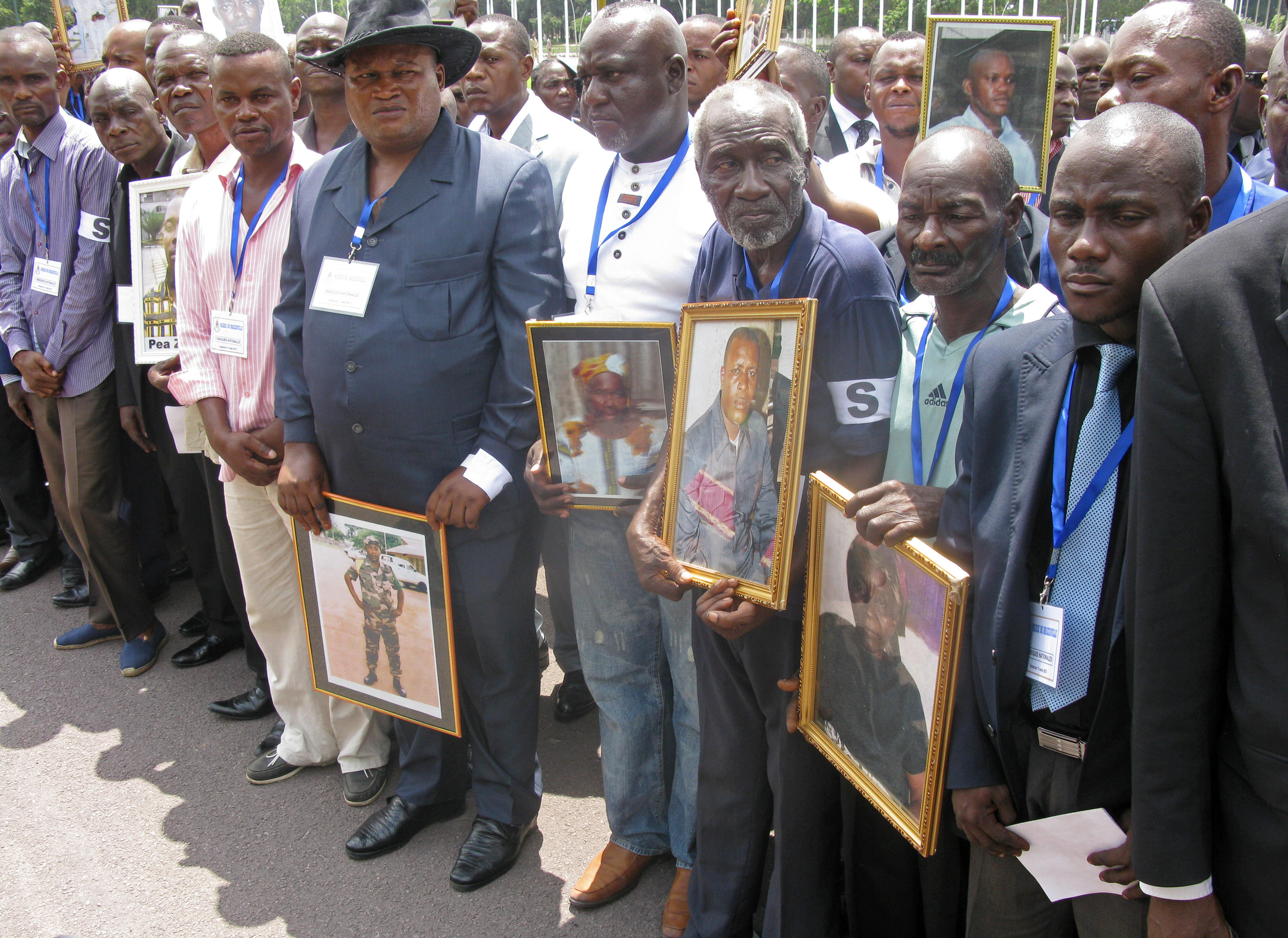“It was like nothing I had seen since I was born,” said Irène Ithos, 44, who is staying with relatives with her four-month-old baby, while her two adolescent children live in the open.
“The explosions caused more damage than all the civil wars the country has experience in the 1990s,” she said.
“I do not know if there is a future for my children. They no longer have a house, they no longer go to school,” added Ithos.
The displaced, mostly women and children, are seeking refuge in six sites scattered across the city: a covered market, four churches and a stadium.
A lack of adequate tents at the sites is a problem. “Most of the people here are sleeping outside,” Martin Bouity, who is in charge of the Sacred Heart Cathedral site, told IRIN. “When it rains, we open the church, which unfortunately cannot hold all of them.”
At least 6,500 people are seeking shelter at the cathedral which has about 20 tents that were set up by the French military.
Health fears
At the site, as in others, children are defecating in the open, raising fears of disease outbreaks; latrines are under construction.
At least 2, 500 children at the sites have been vaccinated against measles; some cases of malnutrition have also been recorded.
Supplying and providing access to potable water, hygiene, sanitation and treatment to the displaced is a priority, according to Yann Diplo, head of the Médecins Sans frontières (MSF) mission in Congo.
| Blasts in Brazzaville |
|
|
At present, the displaced are relying on food and non-food assistance provided by aid agencies, but this is inadequate. “We certainly are eating, but it is not like being in our homes,” Raoul Monguète, one of the displaced, told IRIN. “Sometimes we make do with one meal a day which is served early in the evening. Sometimes we eat late in the night.”
“We can do nothing [about it]. It’s a disaster, it’s an accident.”
Each affected family is set to receive a three million CFA francs (US$6,000) subsistence allowance as well as a compensation payment.
Education disrupted
Learning has also been interrupted for some 20,000 students.
At the Lycée de la Révolution, 500 metres from the Mpila barracks where the explosions took place, some 5,000 students have been affected, among them at least 1,400 who were preparing to sit their leaving exams. The students have since been transferred to the Edouard Nganga College downtown to enable them to prepare for the examination, but challenges remain.
“It will be difficult to prepare… for the exams. We have lost our houses and all that we need,” said Chinella Galoy, 19.
To facilitate the movement of the students, Minister of Primary and Secondary Education Rosalie Kama announced that each will be entitled to a 10,000 CFA franc ($20) monthly transport allowance. But the students say this is not enough. “It’s very little…10,000 FCFA will cover fares for 10 days at the most,” said Brunela Ngala Ondaye, 18.
Classroom construction is also under way for others out of school. “We are struggling to build classrooms with planks and iron sheets in the other schools which were spared during the explosions. This will allow the students to complete their school year,” said Kama. The government plans to extend learning for the affected students by a month after schools break up in June.
The displaced could be away from home for a long time with the area of Mpila still littered with dangerous munitions.
The Congolese armed forces, as well as UN and NGO demining experts, are helping to decontaminate an area within a 1km radius of the blast, with fencing erected to prevent public access.
According to Charles Frisby, a UN demining expert, at least 1,500kg of munitions have been collected so far. The European Union has urged the Congolese government to consider relocating all munitions depots away from residential areas.
lmm/aw/cb
This article was produced by IRIN News while it was part of the United Nations Office for the Coordination of Humanitarian Affairs. Please send queries on copyright or liability to the UN. For more information: https://shop.un.org/rights-permissions



